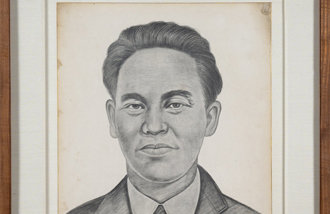A Talk With the US Special Rights Envoy
A Talk With the US Special Rights Envoy
Posted March. 24, 2006 02:59,
Thanks to the North Korean Human Rights Act, the U.S. government allows North Koreans to receive refugee status if they ask for it. But not a single North Korean has received refugee status since the enactment of the law.
-It is honorable of the US to accept people under pain in its territory, the US special envoy for human rights in Korea said. Giving refugee status is a U.S. top priority.
Has the U.S. kept a low refugee status profile since the second half of last year, for the sake of the six-party talks?
That is not true. President George W. Bush has never been morally ambiguous on this issue. The fact that evil persists in North Korea and that political murder continues in prison camps has not changed.
-But there has been little progress in allocating the budget of $24 million from the North Korean Human Rights Act and giving refugee status to North Korean defectors.
The US is making its best efforts to advance the refugee-accepting procedures. There is no doubt that we will accept North Korean defectors. However, it is necessary to stop North Korean agents or people who might cause security concerns in the U.S. from gaining refugee status.
-There are rumors that the US will give priority to North Korean defectors who have information on WMD.
We are not accepting only those with certain information. First of all, we may consider women and children victims of human trafficking.
-The North Korean human rights issue is closely related to the nature of the regime. Do you think the regimes fundamental character will change?
Changing the regime is not part of U.S. policy. I hope that North Koreas policies toward its own people will change. The way a regime sees and treats its own people shows the character of it. When the day North Koreans believe that the regimes character should change comes, the regime will change.
-To advance that, the Korean governments determination is crucial.
Korea could have triggered bigger changes in North Korea by utilizing its enormous influence on North Korea that was developed through economic investment, and humanitarian aid. Though the Gaesong industrial complex project is currently underway, the Korean government should feel responsibility for issues of North Korean workers protection, rights, and payment of wages.
-There has been controversy over whether to relate humanitarian aid with human rights or not.
I was reported to have said that the two issues should be related. But the reports were misleading. More than the question of whether to relate them or not, confirming whether food aid went to hungry North Koreans is important. The U.S. has provided a huge amount of food aid over the last decade. However, it would be meaningless if North Koreas military diverted the food and sold it on the black market. Transparency should be implemented. If that happens, we intend to dramatically increase our food and medical assistance.
-There are controversies over bread and freedom. A few days ago, the election in Republic of Belarus gave the impression that its people chose bread. Progressive groups in Korea also say that for hungry people, it is premature to discuss freedom.
It seems that people of Belarus chose bread over freedom. But without freedom, it is difficult for a society to sustain itself. A dictator may feed his people right now. But he can change his mind anytime.
He attended the second North Korean human rights convention in December 2005. However, he failed to meet a ministerial level official of Korea, which triggered speculations that the Korean government avoided talks with a special envoy of human rights,
- Some people said that the Korean government was reluctant to meet you.
I met several Korean officials. We had a candid conversation and clearly, there was progress.
Seung-Ryun Kim srkim@donga.com







